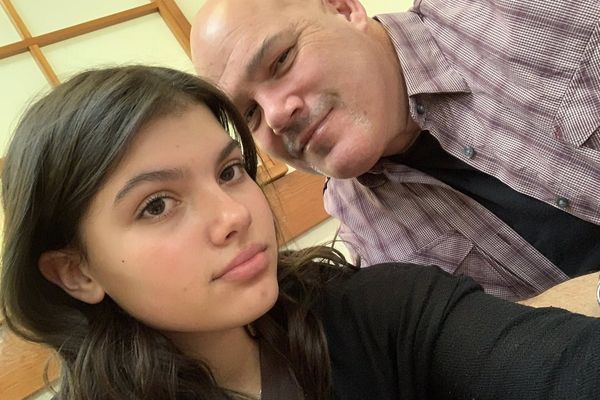From today's decision in State v. Bliss (N.C. Ct. App.), written by Judge Jeffery Carpenter and joined by Judges Julee Flood and Michael Stading:
Defendants were journalists for The Asheville Blade, a newspaper. The Asheville Blade is known for criticizing the Asheville Police Department's methods of clearing homeless encampments and corresponding protests. On 19 December 2021, a multi-day protest began in Aston Park …, a public park owned and operated by the City of Asheville …. Section 12-41 of the City Code (the "Park Curfew") provides that … "All public parks … shall be closed to the general public between the hours of 10:00 p.m. and 6:00 a.m." …. The purpose of the protest was to demand that the city allow "sanctuary camping" in the Park for the local homeless population….
On 25 December 2021, Defendants were at the Park….. Shortly after 10:00 p.m., officers began dismantling protestors' tents and artwork. Officers also instructed everyone in the Park, including Defendants, to vacate the Park. Officers told Defendants they could continue reporting from outside the Park. Defendants, however, did not leave the Park and around 10:30 p.m., following additional requests by officers to vacate the Park, officers arrested Defendants for second-degree trespass….
Defendants were found guilty, and sentenced to "a $100 fine plus court costs." They appealed, but the appellate court rejected their First Amendment claims:
In State v. Barber (2021), … we concluded that "the First Amendment [was] not implicated in the conduct for which [the] [d]efendant was charged." In Barber, the defendant was leading a group of fifty protestors through the North Carolina General Assembly office complex when he was arrested for trespass. The defendant, who was engaging in "call and response" chants, violated certain building rules that stated visitors of the complex "may not disturb or act in a manner that will imminently disturb the General Assembly[.]" Officers instructed defendant to stop leading the chants and leave the building. When the defendant did not leave, he was arrested for second-degree trespass….
[We] reason[ed] that because the building rules did not "speak to the nature or content of a visitor's speech" the defendant's speech was not protected. Although this conclusion was dispositive, we went on to say that even if the defendant's speech was protected, "his rights were not violated" because the building rules were "reasonable 'time, place, manner' restrictions" under the public forum doctrine…. "[T]he interior of the General Assembly is not an unlimited public forum" ….
The Park Curfew provides that "[a]ll public parks … shall be closed to the general public between the hours of 10:00 p.m. and 6:00 a.m." Thus, by its plain language, the Park Curfew regulates pure conduct, does not aim to restrict free expression, and does not place an incidental burden on free speech. As in Barber, the Park Curfew does not "speak to the nature or content of a visitor's speech." Instead, the Park Curfew simply excludes all individuals from the Park between the hours of 10:00 p.m. and 6:00 a.m. Because the Park Curfew strictly regulates conduct, not speech, Defendants' First Amendment rights were not implicated in this case.
Even assuming Defendants' speech was protected, the Park Curfew was both sufficiently justified under the O'Brien balancing test, and was a reasonable time, place, manner restriction under the public forum doctrine…
Defendants also argued that the trial court erred in not giving supplemental jury instructions in response to jury questions, but the court concluded that this argument hadn't been properly preserved at trial:
During deliberations, the jury submitted a note to the trial court stating the following, in pertinent part: "We would like clarification as to if there was an instruction on the applicability of the First Amendment" (the "First-Amendment Question") and "We would like clarification as to if we are allowed to consider the [D]efendants' status as members of the press as potential exemption from the applicable ordinance" (the "Press-Status Question"). Thereafter, outside the presence of the jury, the parties conferred regarding the jury's questions. The trial court informed the parties how it would re-instruct the jury and defense counsel did not object to the trial court's proposed instructions. Thereafter, the trial court instructed the jury as follows:
Trial court: The answer to [the First-Amendment Question] is, no, there was not such an instruction. The issue of whether or not the defendants' First Amendment constitutional rights, particularly the free speech, is a question of law that will be decided by the Court, not the jury….
Trial court: Now, as to the [Press-Status Question] … My instruction to you is, you are entitled to consider all the evidence in this case in determining the guilt or innocence of the defendants….
Defendants acknowledge they did not object when the trial court conferred with the parties about how to respond to the jury's questions. Instead, they assert the trial court, when re-instructing the jury, "substantially deviated from what it had told defense counsel it intended to say, thus depriving counsel of the opportunity to object with specificity." The trial court's instructions, however, were nearly identical to the instructional language the trial court proposed when the parties conferred. Thus, the trial court's instructions were not a substantial deviation from what was previously agreed upon and Defendants were not denied the opportunity to object with specificity. On the contrary, Defendants had ample time and opportunity to object but failed to do so….
Special Deputy Attorney General Matthew Tulchin represents the State.
The post Reporters Aren't Exempt from Ordinance Forbidding Presence in City Park from 10 pm to 6 am appeared first on Reason.com.







